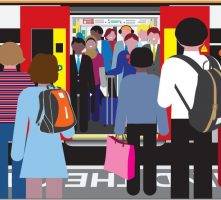September 21, 2016
Millennials no different from their elders in attitudes to the workplace 0
 The portrait often drawn of Millennials is that of a generation which is keen to stand out from that of its elders, and which is difficult to pin down. They’re said to have difficulty accepting a hierarchical structure and no longer view their salary as the only motivating factor but instead are looking for a sense of accomplishment in their work. Yet as we reported recently, the behaviour and expectations of this younger generation has in fact stayed fairly constant. For them, the ideal company has attributes which are actually fairly similar to those cited by their more experienced colleagues. The result of the latest Edenred-Ipsos barometer into the under 30s suggests that for employers, the issue is not so much about dealing with this generation independently of the others, but rather globally rethinking leadership challenges in an environment which is increasingly digitalized, horizontal and multi-task oriented, taking into account individual countries’ cultural differences.
The portrait often drawn of Millennials is that of a generation which is keen to stand out from that of its elders, and which is difficult to pin down. They’re said to have difficulty accepting a hierarchical structure and no longer view their salary as the only motivating factor but instead are looking for a sense of accomplishment in their work. Yet as we reported recently, the behaviour and expectations of this younger generation has in fact stayed fairly constant. For them, the ideal company has attributes which are actually fairly similar to those cited by their more experienced colleagues. The result of the latest Edenred-Ipsos barometer into the under 30s suggests that for employers, the issue is not so much about dealing with this generation independently of the others, but rather globally rethinking leadership challenges in an environment which is increasingly digitalized, horizontal and multi-task oriented, taking into account individual countries’ cultural differences.

































May 25, 2016
An out of hours email ban and why we all need the ‘right to disconnect’ 0
by Adrian Lewis • Comment, Flexible working, Legal news, Work&Place, Workplace
More →